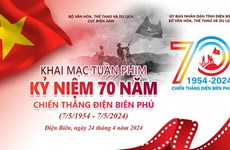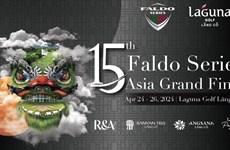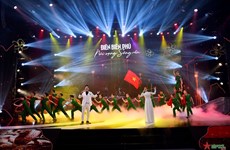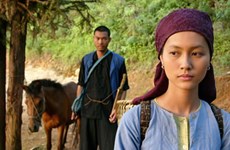Vietnamese, RoK tugging rituals, games performed in Hanoi
Tugging rituals and games of Vietnam and the Republic of Korea were performed at Tran Vu temple in Long Bien district, Hanoi during an exchange held on November 23.
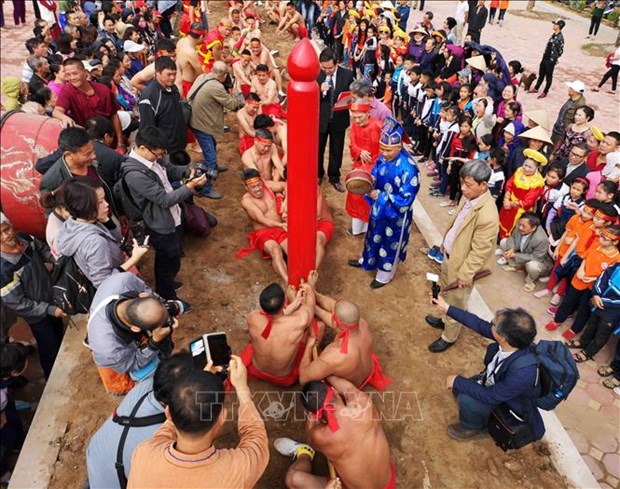 Tugging rituals and games of Vietnam and the Republic of Korea were performed at Tran Vu temple in Long Bien district, Hanoi during an exchange held on November 23. (Photo: VNA)
Tugging rituals and games of Vietnam and the Republic of Korea were performed at Tran Vu temple in Long Bien district, Hanoi during an exchange held on November 23. (Photo: VNA)Hanoi (VNA) – Tugging rituals and games of Vietnam and the Republic of Korea were performed at Tran Vu temple in Long Bien district, Hanoi during an exchange held on November 23.
At the event, managers and researchers also discussed cooperation measures to protect the folk games of the two countries in the future.
Tugging rituals and games of Vietnam, Cambodia, the Philippines, and the RoK were added to the UNESCO’s Representative List of the Intangible Cultural Heritage of Humanity on December 2, 2015.
Tugging rituals and games are prevalent in the rice-farming cultures of East Asia and Southeast Asia as a form for communities to pray for abundant harvests and prosperity. They mark the start of the agricultural cycle and often begin with commemorative rites to local deities.
Typically held near a communal house or shrine, two teams on either end of a rope try to tug it from the other. The practice is non-competitive, strengthening community solidarity and identity, UNECO said on its website.
In Vietnam, tug-of-war is a folk game that is practiced in a number of traditional festivals and community events.
Apart from tugging rituals and games, Vietnam boasts other 11 UNESCO-recognised Intangible Cultural Heritages of Humanity, comprising Nha Nhac - Vietnamese court music, Space of gong culture in the Central Highlands, Quan ho Bac Ninh folk songs, Ca Tru singing, Giong festival of Phu Dong and Soc temples, Xoan singing of Phu Tho province, the worship of Hung Kings in Phu Tho, the art of Don ca tai tu music and song in southern Vietnam, Vi and Giam folk songs of Nghe Tinh, practices related to Vietnamese beliefs in the Mother Goddesses of Three Realms, and the art of Bai Choi in central Vietnam.-VNA








